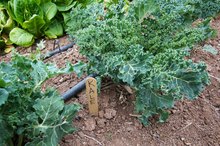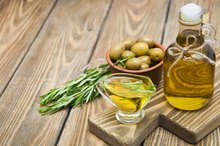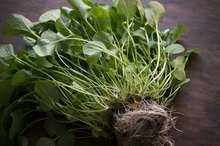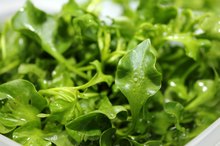What does fact checked mean?
At Healthfully, we strive to deliver objective content that is accurate and up-to-date. Our team periodically reviews articles in order to ensure content quality. The sources cited below consist of evidence from peer-reviewed journals, prominent medical organizations, academic associations, and government data.
- “Journal of Ethnopharmacology”; Aqeous Extract of Carica Papaya Leaves Exhibits Anti-Tumor Activity and Immunomodulatory Effects; Otsuki et al; 2010
- “Journal of Ethnopharmacology”; Aqeous Extract of Carica Papaya Leaves Exhibits Anti-Tumor Activity and Immunomodulatory Effects; Otsuki et al; 2010
The information contained on this site is for informational purposes only, and should not be used as a substitute for the advice of a professional health care provider. Please check with the appropriate physician regarding health questions and concerns. Although we strive to deliver accurate and up-to-date information, no guarantee to that effect is made.
How to Dry Papaya Leaves for Tea
Papaya, or papain, is a sweet fruit that grows native to the American tropics. A 2010 study published in the “Journal of Ethnopharmacology” found papaya leaf to be potentially beneficial in the treatment of various diseases ranging from allergic disorders to cancer 1. If you are lucky enough to live close to a fresh supply of papaya leaves, you can easily utilise their health benefits and enjoy their taste by drying the leaves for use in tea.
Dry the leaves naturally. Gather bunches of about six papaya leaves together, secure them with string and hang the bunches in a cool, dark, dry place to air dry. Depending on the location's ambient temperature, this may take several weeks. Ensure that the leaves are not moist before you begin, as moisture can create mildew, meaning the leaves will rot rather than dry.
How to Dry Home Grown Guava Leaves for Tea
Learn More
Dry them in the oven. For quicker drying, place as many leaves as will fit on a baking tray and set the tray into an oven preheated to 225 degrees Fahrenheit. Evaluate the leaves after ten minutes and check on them regularly every following 10 minutes until they reach the desired dryness level. You want the leaves to be dry and brittle but not burnt.
Dry the leaves in the microwave. For ultimate speed, place a bunch of papaya leaves on a plate in the microwave on the "Low" power setting. Check for doneness after two or three minutes.
How to Blanch Kale
Learn More
Utilise the leaves for tea. Crush the dried leaves with your hands to crumble them and either place the loose tea in a tea ball or make your own tea bags by filling muslin drawstring bags. Alternatively, prepare the tea the old-fashioned way by simply pouring boiling water over a teaspoon of dry leaves. The leaves will float to the top initially, but will soon sink back to the bottom.
Tips
Store dried papaya leaves in an airtight container in a cool, dry place, just as you would ordinary tea.
Warnings
Papaya is thought to interact with the anticoagulant warfarin and, according to a report published by the “American Journal of Health” in 2000, patients taking warfarin should avoid papaya supplementation.
Related Articles
References
- “Journal of Ethnopharmacology”; Aqeous Extract of Carica Papaya Leaves Exhibits Anti-Tumor Activity and Immunomodulatory Effects; Otsuki et al; 2010
- “American Journal of Health”; Potential Interactions – Alternative Therapies and Warfarin: Documented Reports of Possible Herb-Warfarin Interactions; Heck et al; 2000
- Algabri SO, Doro BM, Abadi AM, Shiba MA, Salem AH. Bay Leaves have antimicrobial and antioxidant activities. J Pathogen Res. 2018;1(1):3.
- Bennett L, Abeywardena M, Burnard S, et al. Molecular size fractions of bay leaf (Laurus nobilis) exhibit differentiated regulation of colorectal cancer cell growth in vitro. Nutr Cancer. 2013;65(5):746-764. doi:10.1080/01635581.2013.796999
- Pereira ASP, Banegas-Luna AJ, Peña-García J, Pérez-Sánchez H, Apostolides Z. Evaluation of the anti-diabetic activity of some common herbs and spices: providing new insights with inverse virtual screening. Molecules. 2019;24(22):4030. doi:10.3390/molecules24224030
- USDA, FoodData Central. Spices, bay leaf. Updated April 1, 2019.
Warnings
- Papaya is thought to interact with the anticoagulant warfarin and, according to a report published by the “American Journal of Health” in 2000, patients taking warfarin should avoid papaya supplementation.
Writer Bio
Laura Parr began her professional writing career in 2008 contributing to websites such as Travelbox, 1stop and Traveldojo. She now writes health and fitness-related articles. Parr earned a diploma of adult nursing from the University of Brighton, followed by a postgraduate certificate in public health from the University of Manchester.









